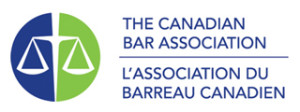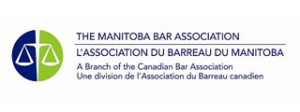News & Blogs
Canada’s 2026–2028 Immigration Levels Plan: What Foreign Nationals Need to Know
Canada has released its 2026–2028 Immigration Levels Plan, signalling significant changes that will affect anyone considering immigration, work, or study in the country. The government is entering a “stabilization phase” that prioritizes long-term, sustainable growth...
Faster Than Expected: A Family Sponsorship Success Story
Family reunification is at the heart of many immigration journeys, and it’s a responsibility we take very seriously. One of our recent clients—along with her husband—entrusted us with their family sponsorship application for permanent residency in Canada. While...
Staying in Canada on Humanitarian and Compassionate Grounds: A Guide to H&C Applications
Canada’s immigration system includes a discretionary option for individuals who do not qualify under traditional immigration streams but have compelling reasons to stay in the country. This option is known as applying for permanent residency under Humanitarian and...
Canada Extends Economic Mobility Pathways Pilot to Support Skilled Refugees and Employers
Canada continues to lead globally in refugee resettlement—and in building innovative immigration pathways that benefit both newcomers and the economy. On June 12, 2025, the Government of Canada announced the extension of the Economic Mobility Pathways Pilot (EMPP) to...
Facilitating Entry to Canada: New Public Policy for Gaza TRV Holders Still Abroad
On April 23, 2025, Immigration, Refugees and Citizenship Canada (IRCC) introduced a new temporary public policy to support foreign nationals from Gaza who were issued temporary resident visas (TRVs) under Canada’s earlier special measures—but who have not yet been...
Bill C-3: Expanding Citizenship by Descent and Addressing the “Lost Canadians” Gap
On December 19, 2023, the Ontario Superior Court of Justice declared key provisions of Canada’s Citizenship Act—specifically the first-generation limit on citizenship by descent—to be unconstitutional. In response, the federal government introduced Bill C-3 in 2025,...
Understanding Temporary Resident Permits (TRPs): Key Information You Need to Know
Canada has strict entry requirements for foreign nationals. If you are inadmissible to Canada due to criminality, medical reasons, or other grounds, you may be denied a visitor visa, study permit, or work permit. However, under certain circumstances, you may still be...
Faster Job Changes for Temporary Foreign Workers in Canada: What You Need to Know in 2025
A new temporary public policy by Immigration, Refugees and Citizenship Canada (IRCC) is making it easier and faster for temporary foreign workers in Canada to change jobs or employers without long breaks in employment. Why This Matters Traditionally, if a temporary...
Maintained Status in Canada: What Temporary Residents Need to Know in 2025
If you’re a temporary resident in Canada—whether you’re working, studying, or visiting—understanding your legal status is critical when extending your stay. IRCC recently updated its guidance on what’s known as maintained status (formerly called “implied status”),...
All You Need to Know About the Parents and Grandparents Super Visa
Canada places a strong emphasis on family reunification, and one of the ways it supports this goal is through the Parents and Grandparents Super Visa. This visa allows Canadian citizens and permanent residents to bring their parents or grandparents to Canada for...

Fridman & Co. - Immigration Law Office
Canadian Immigration Lawyer based in Winnipeg, Manitoba that can help you find your path to Canada.








